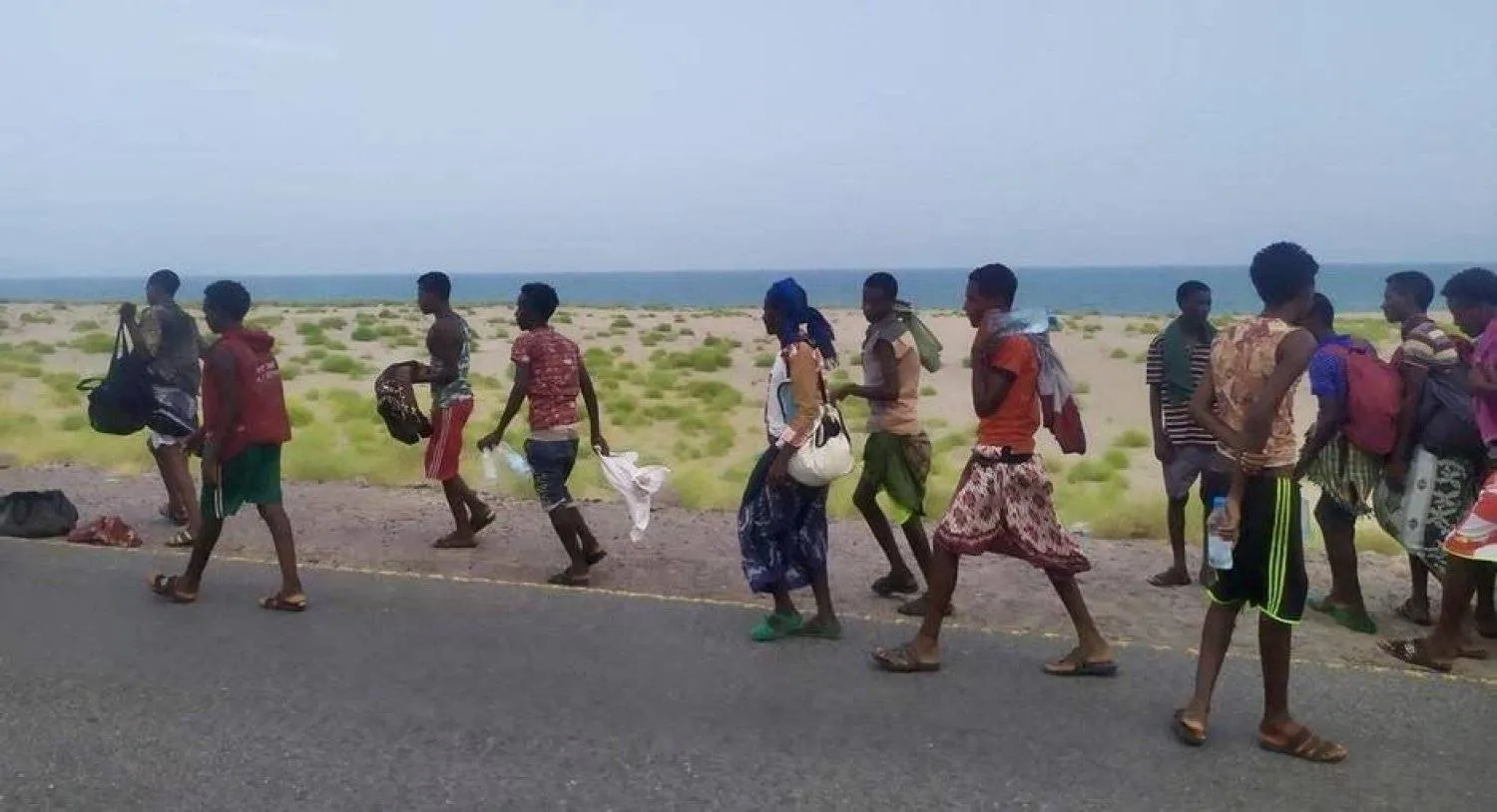The Houthi group has forced hundreds of African migrants in Sana’a to join their military training camps as part of a recruitment campaign for what they call the so-called “sacred jihad” to free Palestine.
In recent days, more than 220 African migrants, including children and the elderly, were sent to secret military training sessions in Sana’a and nearby areas. These sessions are known as Al-Aqsa Flood, according to Yemeni sources.
The Houthi group is expanding its forces by using tactics like abduction, recruitment, brainwashing, and forcing people into sectarian and military training.
Sources say hundreds of African migrants targeted in the latest recruitment drive were captured earlier and moved from the Houthi stronghold of Saada to remote training camps, away from international oversight.
The Houthis reportedly gave migrants the choice to join their forces or be forcibly sent to areas controlled by the Yemeni government. This follows orders from the group's leader to create recruitment camps for migrants.
The group also confirmed recent efforts to track and arrest African migrants in Saada.
In one month, 1,694 migrants were arrested and sent to detention centers, some operated by the Houthi-run “Immigration Authority,” according to the Houthi security media.
The Houthi group has acknowledged, through reports from its security agencies in Sana’a, that since the beginning of this year, it has carried out tracking, pursuit, and abduction operations, resulting in the arrest of over 3,480 migrants in Saada, who were then transferred to Sana’a.
The Houthi group's targeting of African migrants continues, with reports of abuse and extortion, according to human rights sources and international reports.
The Houthis justify their actions by claiming the migrants pose a threat to society. They move them from their stronghold in Saada and other cities to centers in Sana’a, where they are sent to military camps for espionage and smuggling.
Houthi Group Forcibly Recruits African Migrants into Military Camps

Migrants face abuse in Houthi-controlled areas (UN)

Houthi Group Forcibly Recruits African Migrants into Military Camps

Migrants face abuse in Houthi-controlled areas (UN)
لم تشترك بعد
انشئ حساباً خاصاً بك لتحصل على أخبار مخصصة لك ولتتمتع بخاصية حفظ المقالات وتتلقى نشراتنا البريدية المتنوعة







